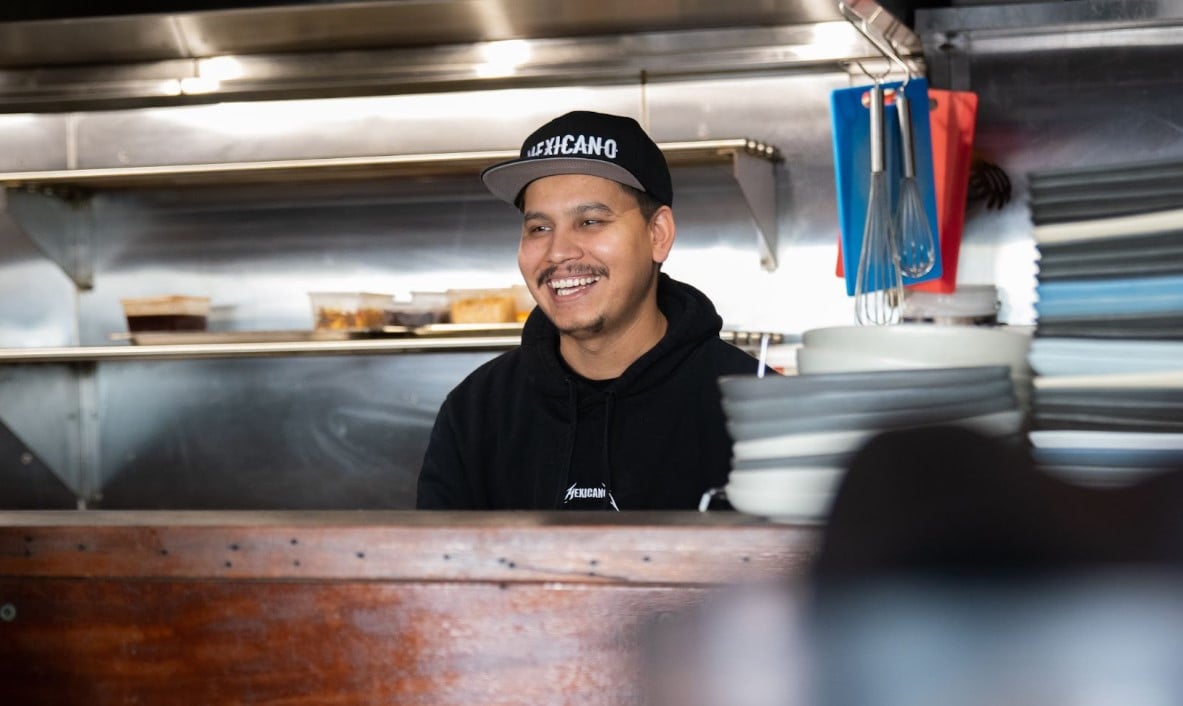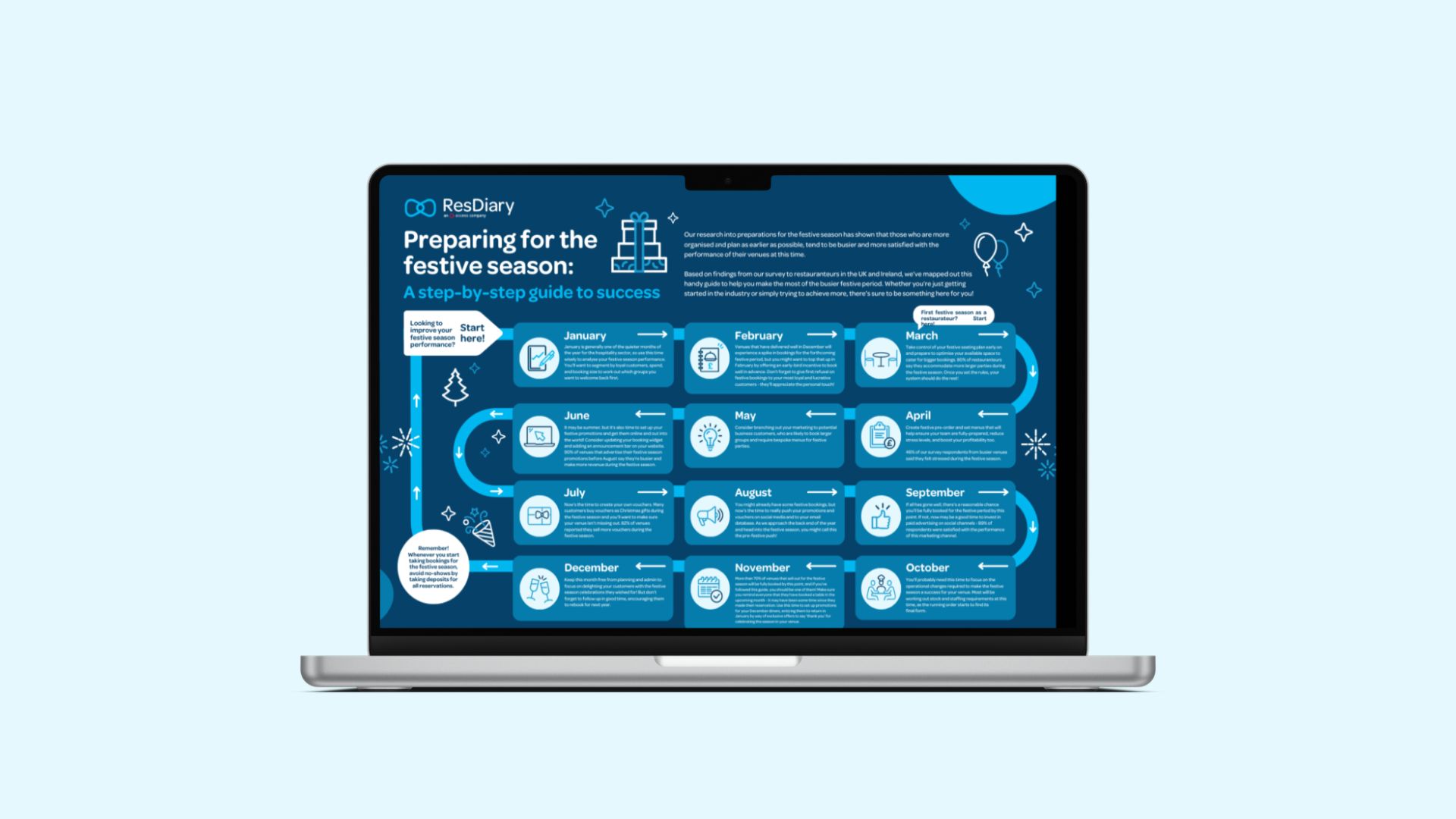As a restaurant owner or manager, you're always looking to bring down the costs of the goods you sell. Profit margins can be thin, so you need to ensure you're purchasing high-quality products at the most affordable prices.
That's why wholesale buying is a necessity for restaurants. It presents the most cost-efficient way to purchase food, drinks and equipment for a hospitality venue.
To ensure the long-term financial viability of your business, it's important you approach wholesale buying in an educated way. We have assembled a complete guide with the information you need to understand wholesale buying in your restaurant.
What is wholesale buying?
Wholesale buying is a process of bulk ordering products from intermediaries between producers and your venue, or from producers themselves.
Wholesale buying is popular in a wide range of industries. Whether it's a retail store or an online business, many merchants rely on wholesalers to turn profits. Hospitality venues are no different.
Wholesale vendors come in all types of different forms. Some are hyper-specialised while others offer a wide range of ingredients. Many wholesale suppliers may only offer a particular type of a single product, while others may establish themselves as your go-to source for flour, fish and blenders all at once.
If you are looking for a way to streamline wholesale ordering for your restaurant, learn more about how a Wholesale Ordering System like FoodByUs can save you time and money.
What are the benefits of wholesale buying?
Buying from a wholesale marketplace offers the following benefits:
- Lower prices: The laws of economics dictate that buying in bulk is more affordable than making smaller purchases at retail prices. Wholesale businesses deal with large quantities of goods and are capable of selling significant amounts to your venue. Bulk orders also result in lower shipping costs over time.
- Stock availability: Wholesale buying is also a great way to ensure your customers always have their favourite menu items available. The more stock you purchase, the smaller the chance that you will run out of it at inopportune times.
- Reduced administration: Ordering is a major part of the job for any restaurant manager. Finding a good wholesaler makes your job much easier, as you can access a wide range of goods and purchase them well ahead of time.
Types of wholesalers for restaurants
Wholesale buying can look quite different depending on how you go about it. Finding wholesale suppliers of high quality can be difficult, so you want to make sure you have all the knowledge you need to succeed.
Here are a few forms of wholesale marketplaces you can consider.
Broadliners
Broadliners are wholesale distributors which carry a large number of products across a range of different areas. They are useful in the hospitality industry as they are able to swiftly respond to the needs of your venue in a range of ways.
Whether you need a fresh order of seafood or new cooking equipment, a broadliner aims to meet your needs in a timely manner. Broadliners can serve as excellent backup plans should you unexpectedly find yourself short of a particular product.
A broadliner will often operate as a retail wholesaler, but they can also be very useful for hospitality venues.
Warehouses
Many warehouses serve as wholesale suppliers. They store goods from distributors or producers and will sell them in bulk. Different warehouses will stock different ranges of products, so you'll need to shop around to find the one that is right for you.
Some warehouses have a very limited role as intermediaries and effectively allow you to buy straight from the distributor or producer. This results in even lower costs for your business.
Keep in mind that wholesale distribution is often not the primary function of a warehouse. This means that you may find timely deliveries and general service from warehouses more difficult to come by than if you are purchasing from a broadliner.
Local producers
Finding a local producer who will sell products in bulk can be a major coup for your venue. Making local producers significant in your supply chain is something your venue can proudly advertise to the delight of your customers. Making a farmer's market your wholesale market can be enormously beneficial for your business.
While other forms of wholesale buying can compromise the freshness of your ingredients, purchasing in bulk from local producers is an excellent way to promote a "farm-to-table" philosophy in your venue.
Local producers may have fewer options compared to larger counterparts and may be unable to respond to emergency orders. If smaller local producers are your primary source for food and beverages, you may occasionally find yourself short of particular products.
One way around this is to utilise a more seasonal menu. You can also have a menu that substitutes particular elements for fresh, available ingredients. If you have established your venue as a place that prioritises local produce, your customers are likely to be amenable to features like this.
Manufacturers
If you are purchasing more commercialised products, you may also be able to secure them directly from the manufacturer. In some cases, this will be the most cost-effective way to secure products as there are no fees to go to intermediaries.
Some manufacturers may operate as retail wholesalers, primarily serving supermarkets, but can also supply products to your business. Keep in mind that manufacturers may not specialise in customer service or responding to requests for express orders.
Which products should you buy wholesale?
- Frozen foods: Frozen foods, such as chips or vegetables, are perfect for bulk ordering. They can sit in your freezer for long periods of time, waiting to be used.
- Beverages: Most beverages are ideal wholesale products. They are usually non-perishable and ensure that your drink fridges are always well-stocked.
- Bakery supplies: If you bake items on-site, you'll go through plenty of flour, sugar and dairy products, so buy wholesale to ensure you're never in short supply. Baked goods can also be purchased in bulk, assuming you sell plenty of them in a single day.
- Cutlery: Your restaurant will go through a lot of cutlery on a daily basis, so it's the perfect candidate for large bulk orders. Consistent cutlery is the mark of a sophisticated, professional venue, and bulk ordering makes it easier to stick with a single brand or style over a long period of time.
- Cooking equipment: From knives to chopping boards to can openers, a bulk order of cooking equipment is a low-cost way to get your kitchen started.
- Cleaning supplies: It is easy to forget how imperative cleaning supplies are for a successful restaurant. You will go through a lot of these products very quickly, so it is a good long-term idea to purchase them in bulk.
Which products should you not buy wholesale?
Generally, the only category of product which you should consider not purchasing in bulk is perishable items. This can include fruit, vegetables, meat, seafood and any other product with a short shelf life.
Depending on your daily turnover or your food storage practices, your business may be able to purchase these products in bulk quantities. Just make sure you do not over-purchase, as you may end up wasting food and losing your business money.
Tips for wholesale buying
- Optimise your inventory procedures: Inventory management is critical for effective wholesale buying. If your team is not effectively handling inventory, the savings you receive from wholesale prices may be wasted. If necessary, implement staff training on concepts like First In, First Out (FIFO) to ensure you do not lose money.
- Know your finances: Before you begin making wholesale purchases, you should be well aware of your financial situation so you can establish your profit margins. For more information on financial management in your business, see our guides to making a business plan and KPIs for restaurants.
- Compare and research: As with any major financial decision you make inside or outside your business, research is critical. There is no shortage of resources to help you find wholesale suppliers and select the best one for you. As a first step, compare one wholesaler's online store to another's. You can also ask around within your industry connections to find the very best option for your business.
- Prioritise customer service: A steady supply of food and beverages is the backbone of your business. When selecting a wholesale supplier, ensure that it has a strong reputation for responding to customer needs.
Streamline your restaurant operations with ResDiary
Effective wholesale buying requires a comprehensive understanding of your finances. From table management systems to high-level EPOS integrations, ResDiary helps you wrap your head around all the complex factors that determine your supply chain needs.
ResDiary also helps boost your restaurant operations in myriad other ways. It helps you manage and promote events, implement loyalty programs and more.
Let us help you calculate how much commission fees you'd save by switching to ResDiary today.



